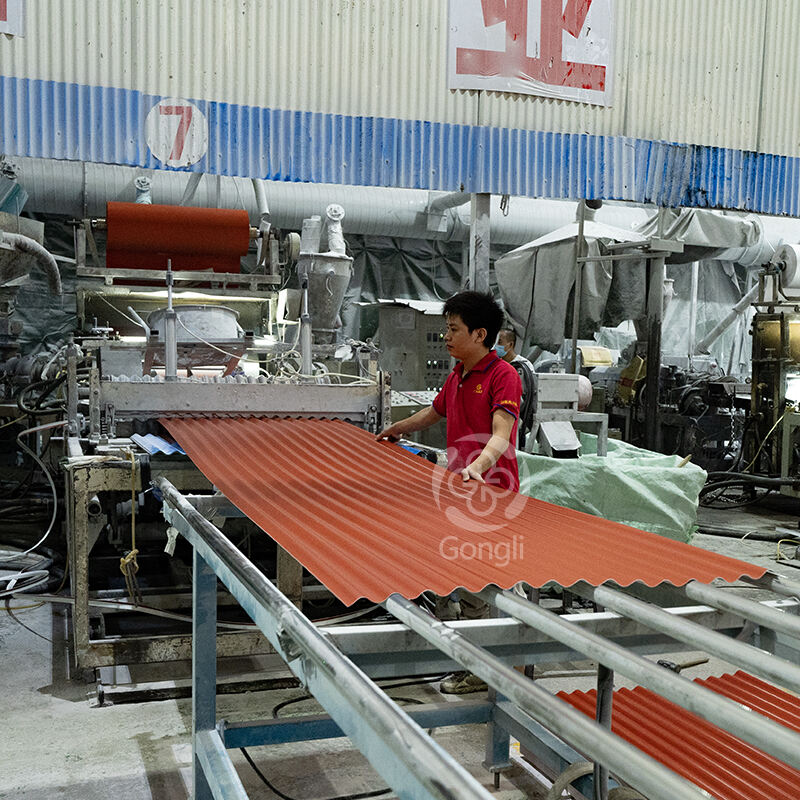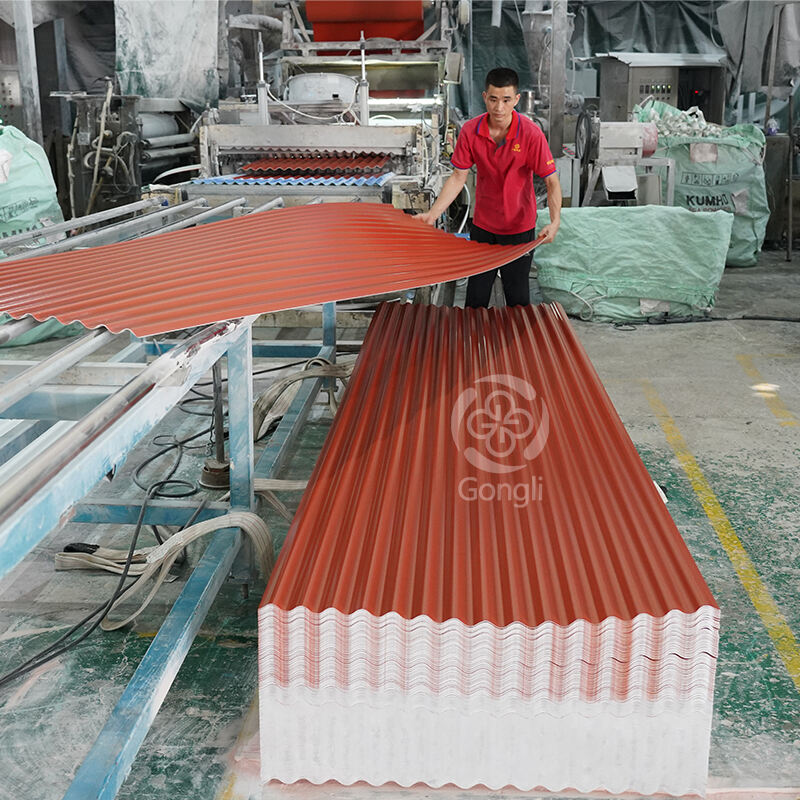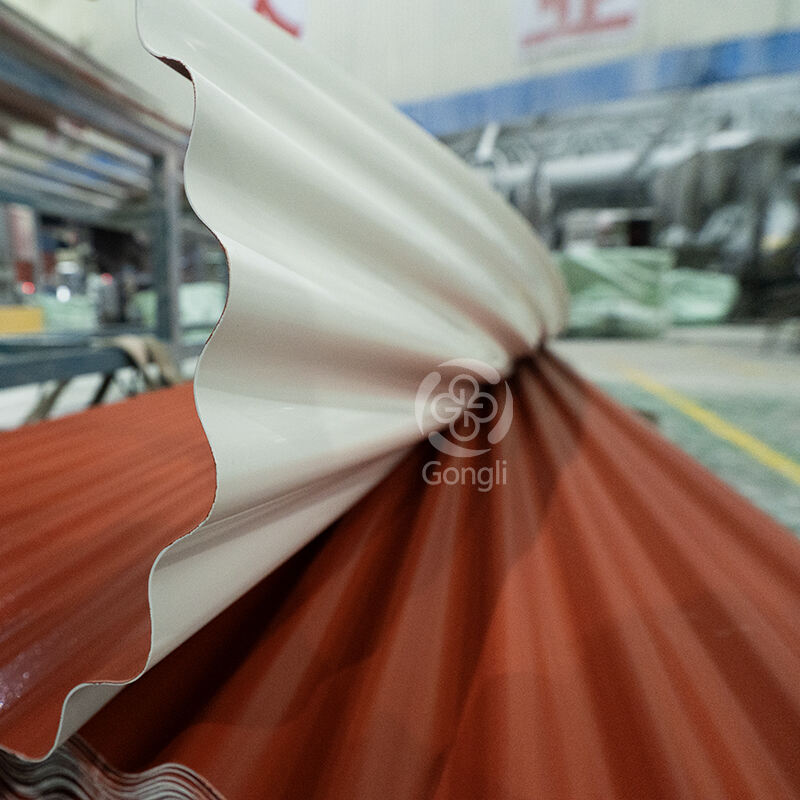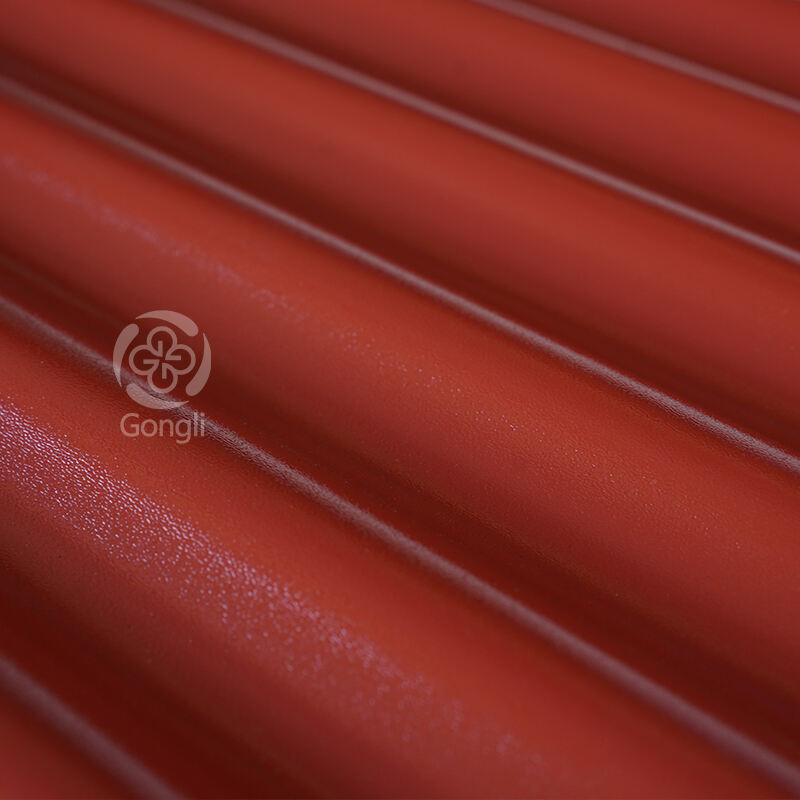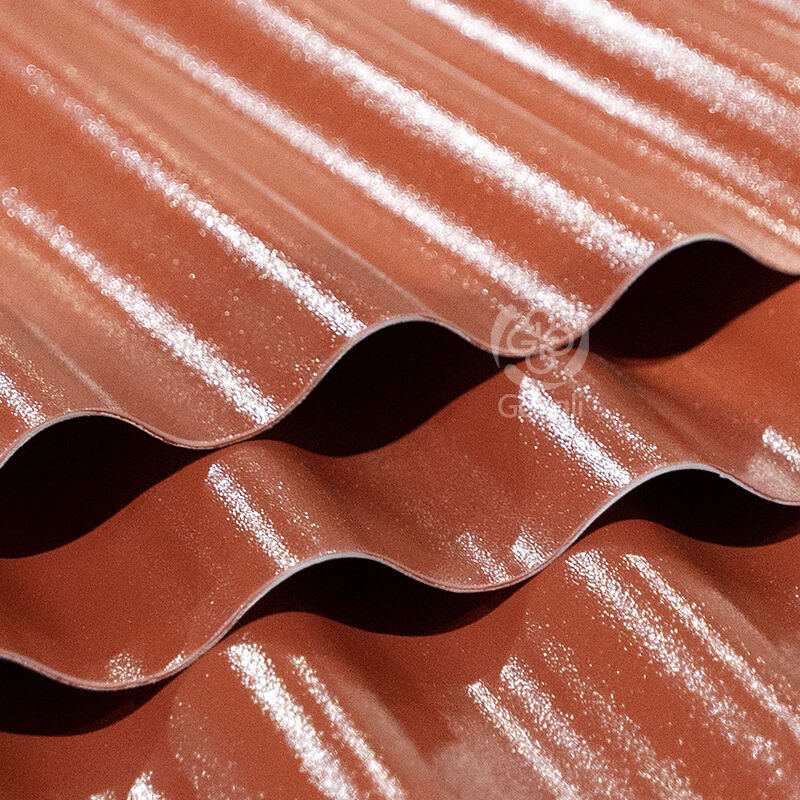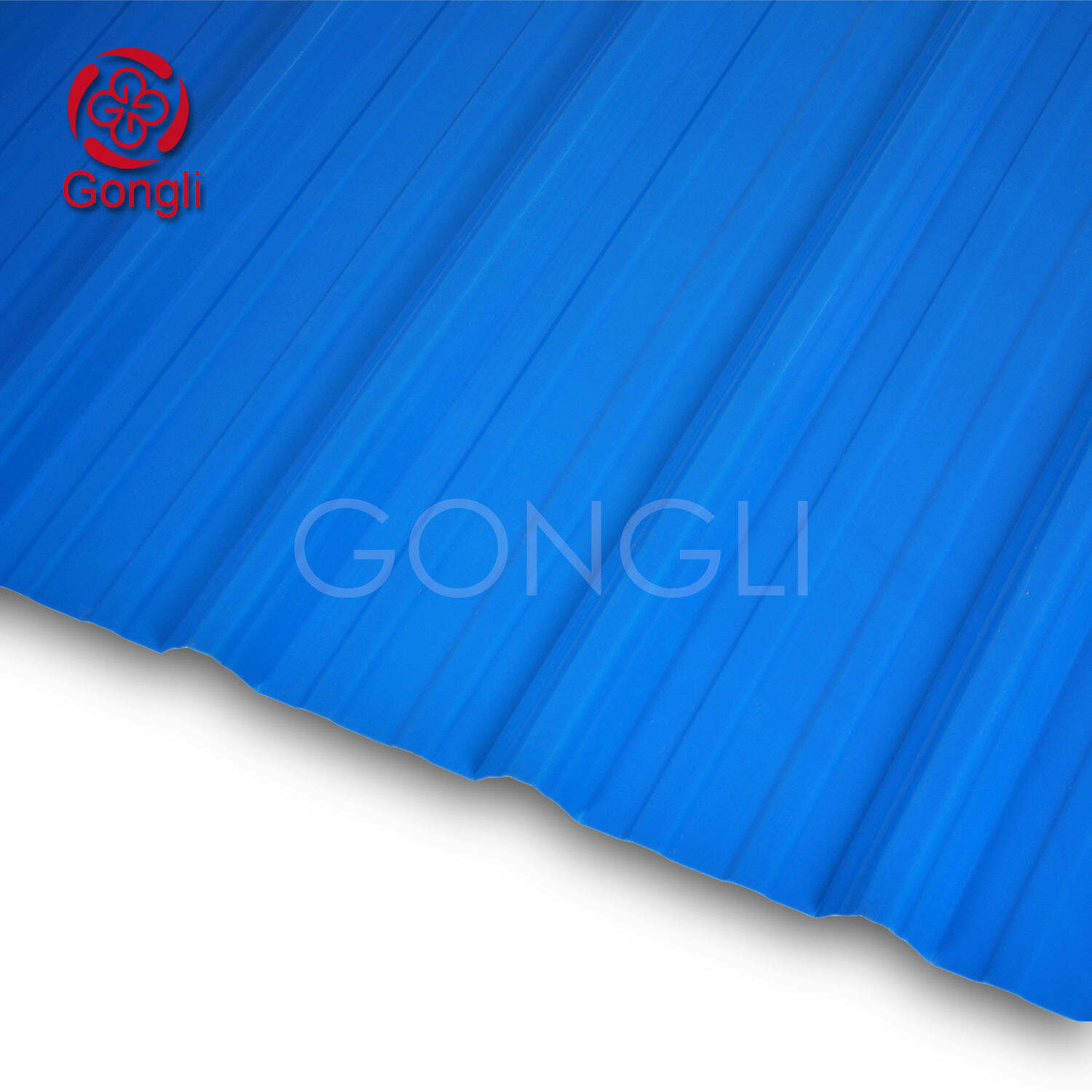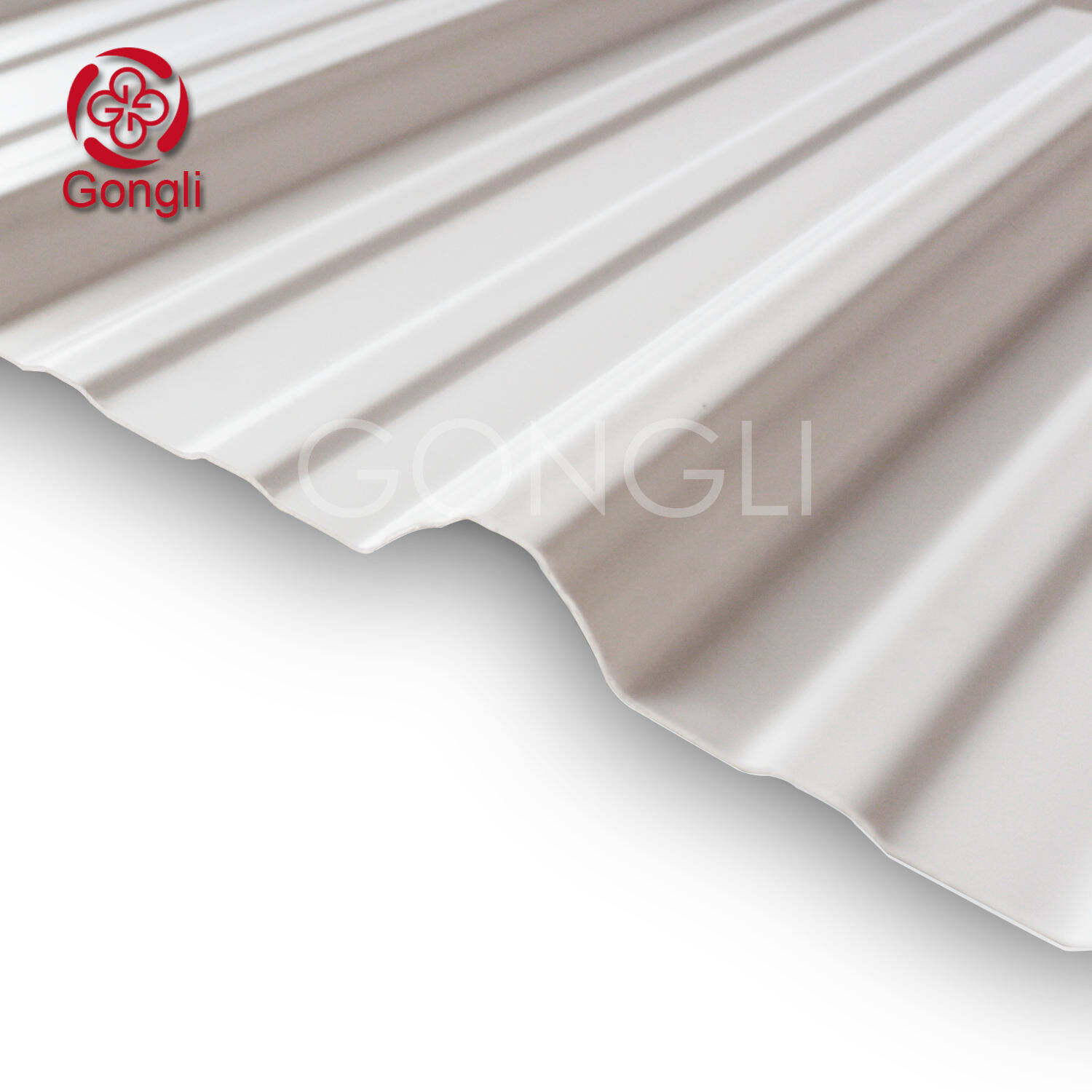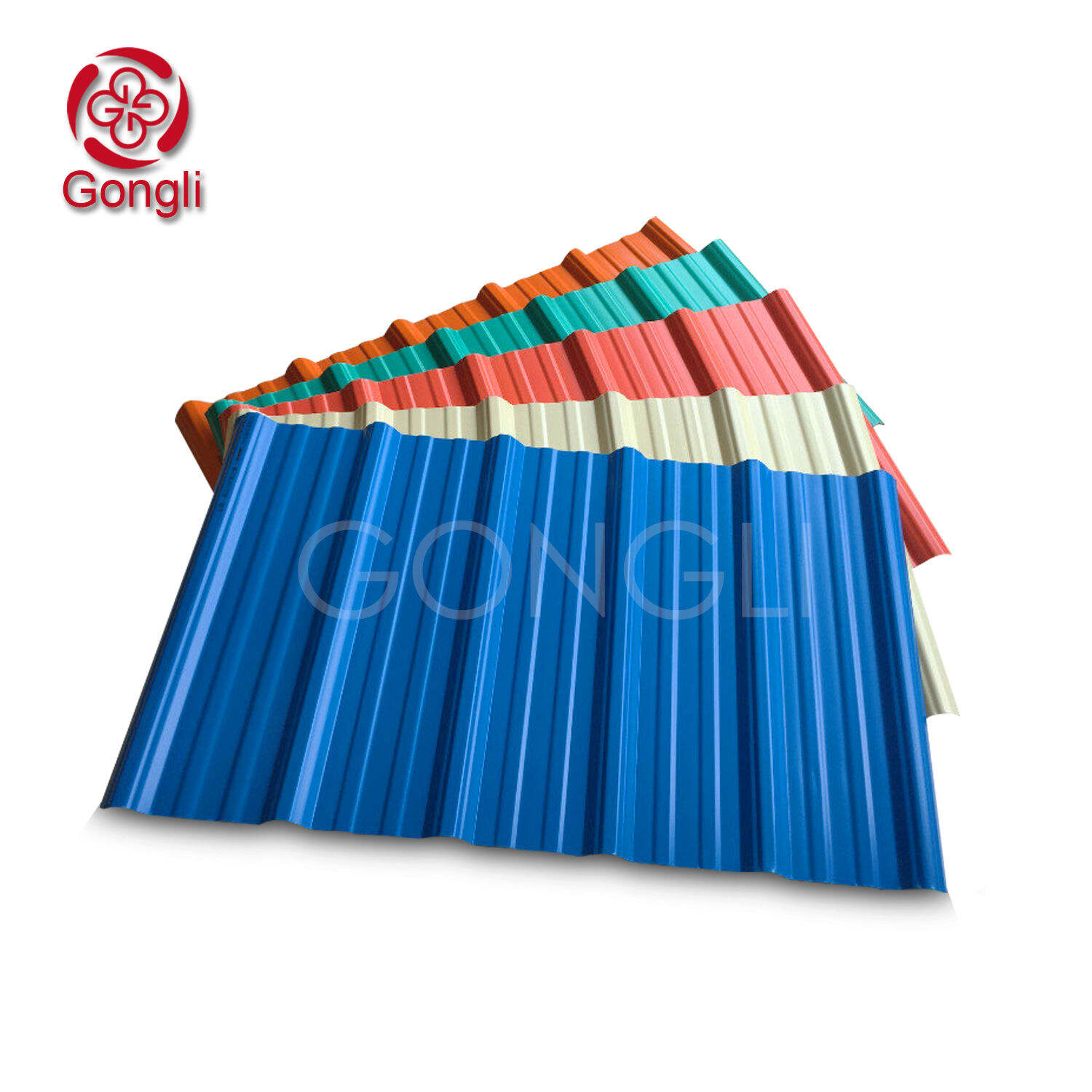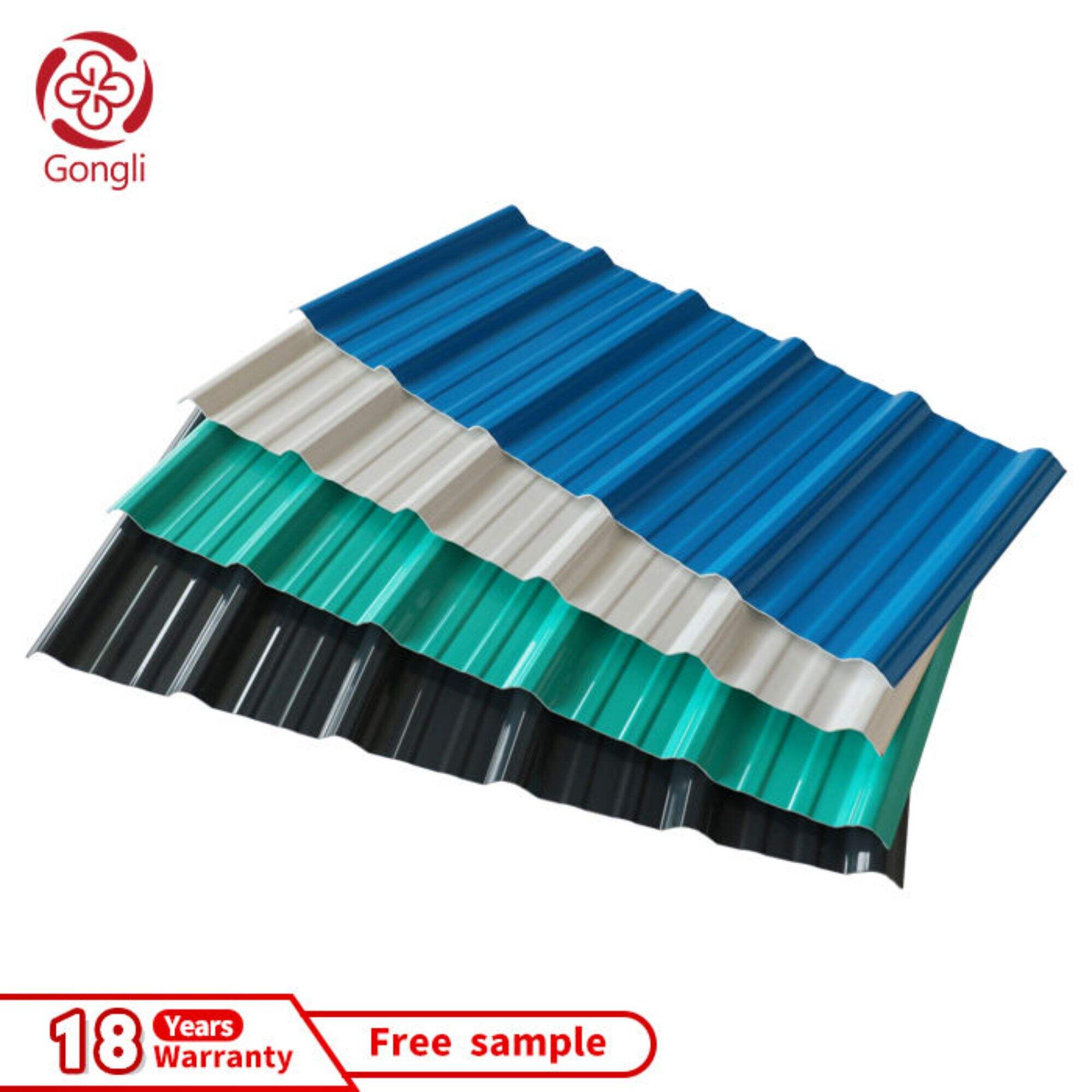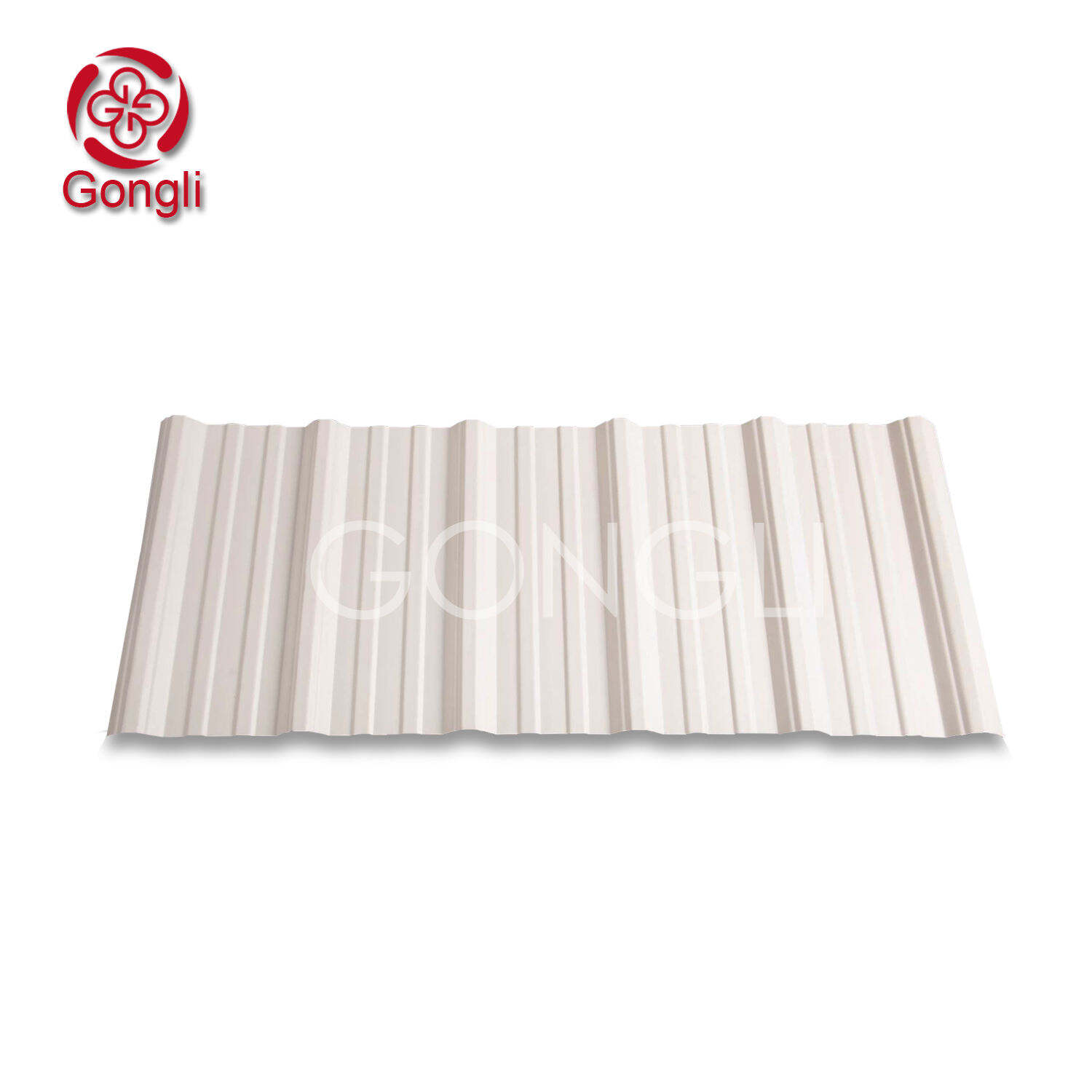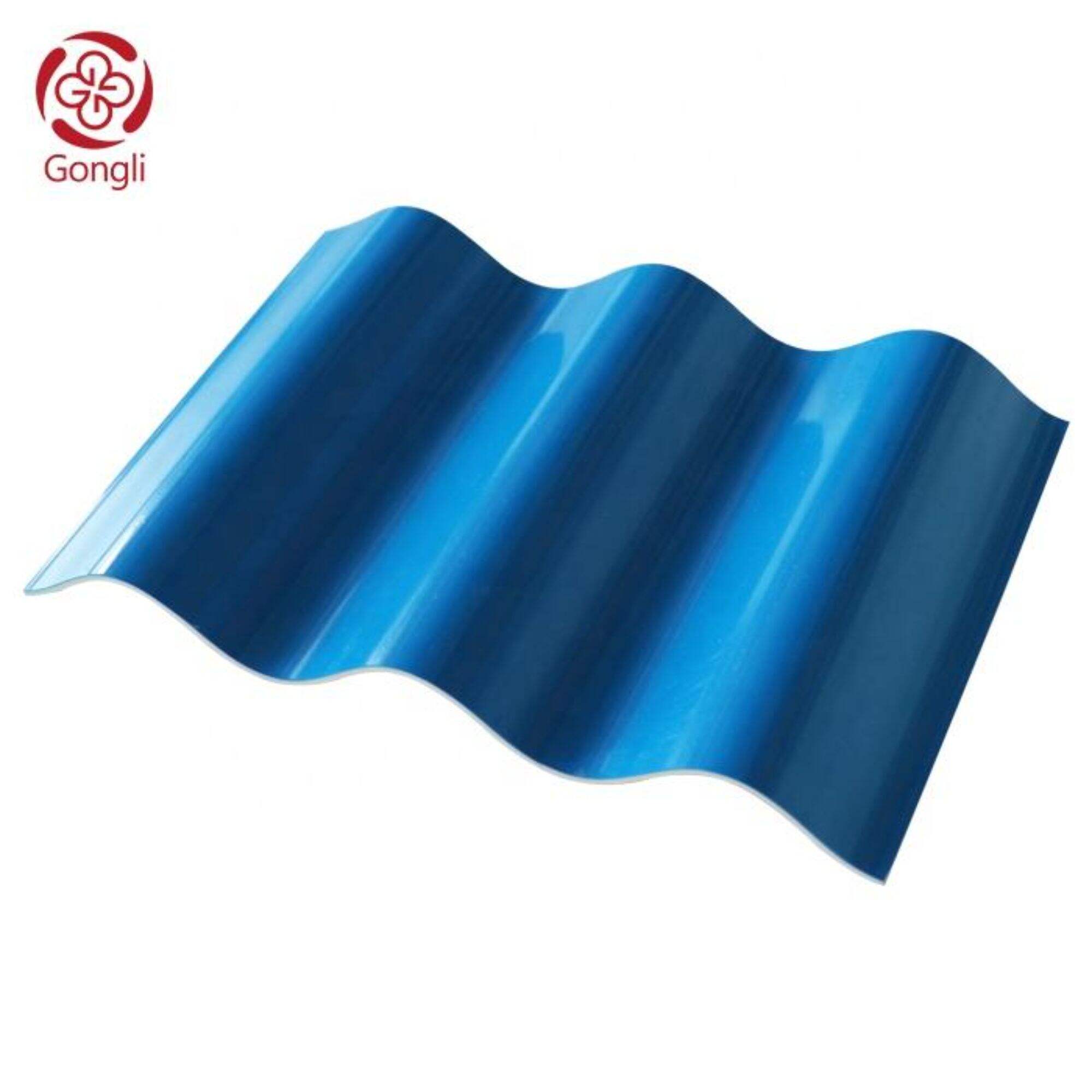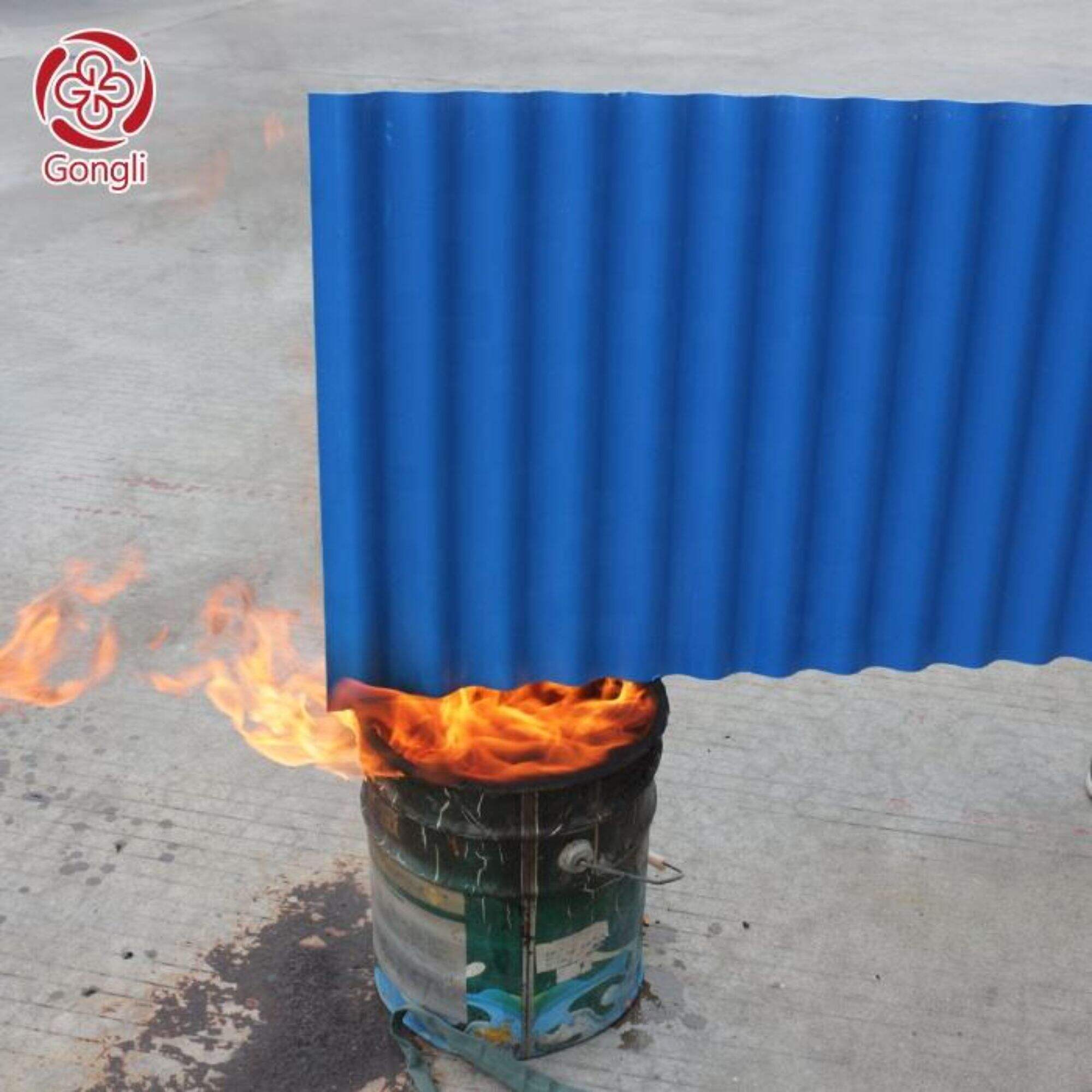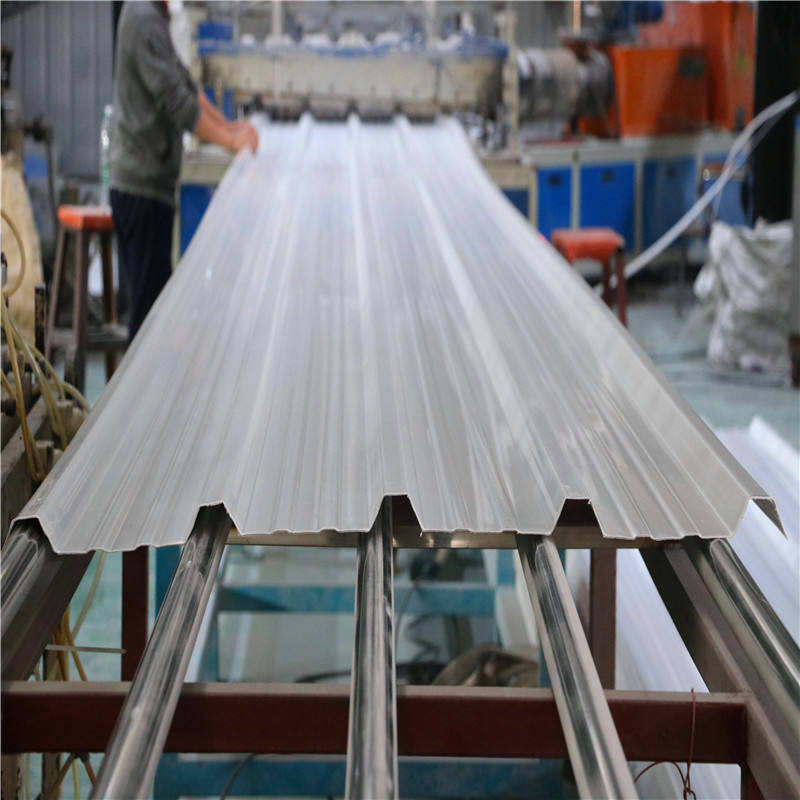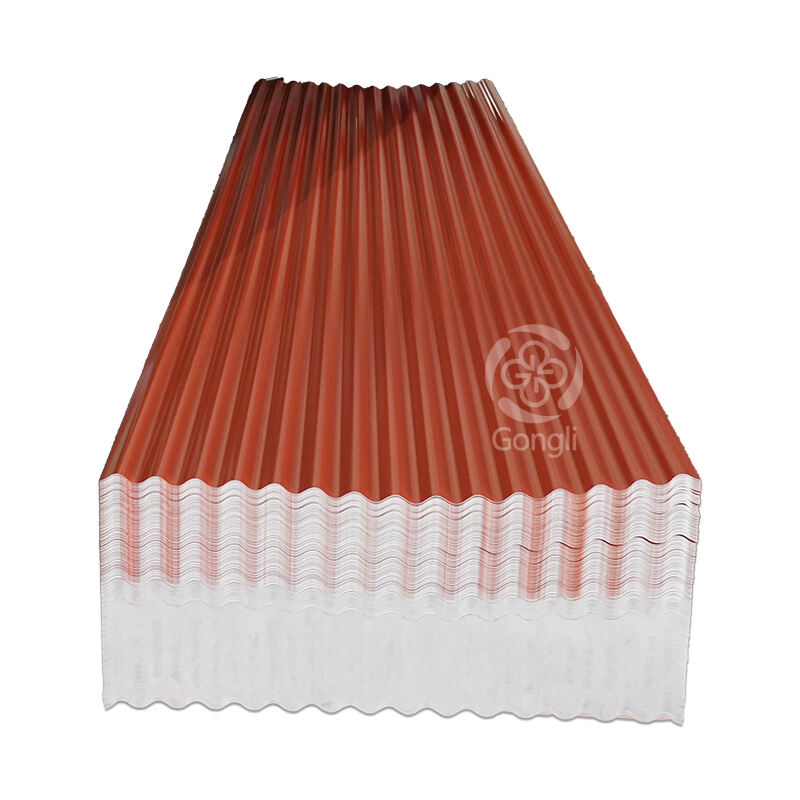
- Overview
- Inquiry
- Related Products
ASA PVC Corrugated Wave Roof Sheets combine the UV resistance of ASA with the strength and flexibility of PVC, offering a durable and weather-resistant roofing solution. Lightweight and easy to install, they reduce labor costs and require minimal maintenance. The corrugated design enhances water drainage and wind resistance, making them ideal for various climates. Available in different colors, these sheets are fire-resistant, environmentally friendly, and provide sound insulation, making them suitable for residential, commercial, and industrial applications.
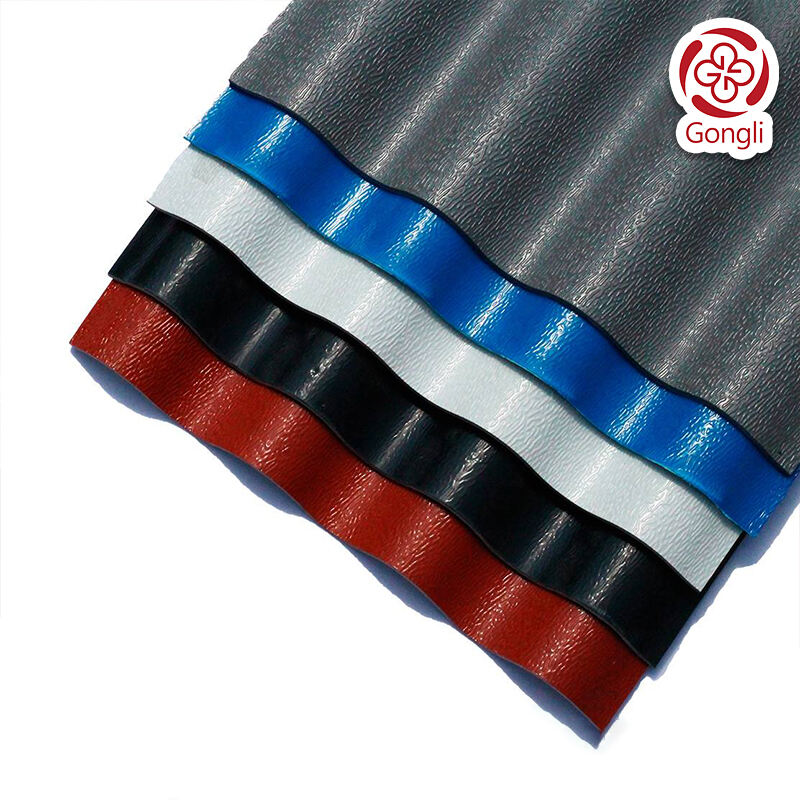
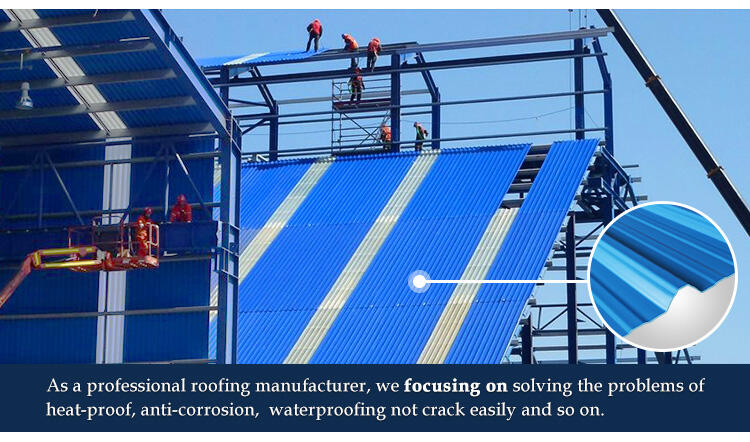
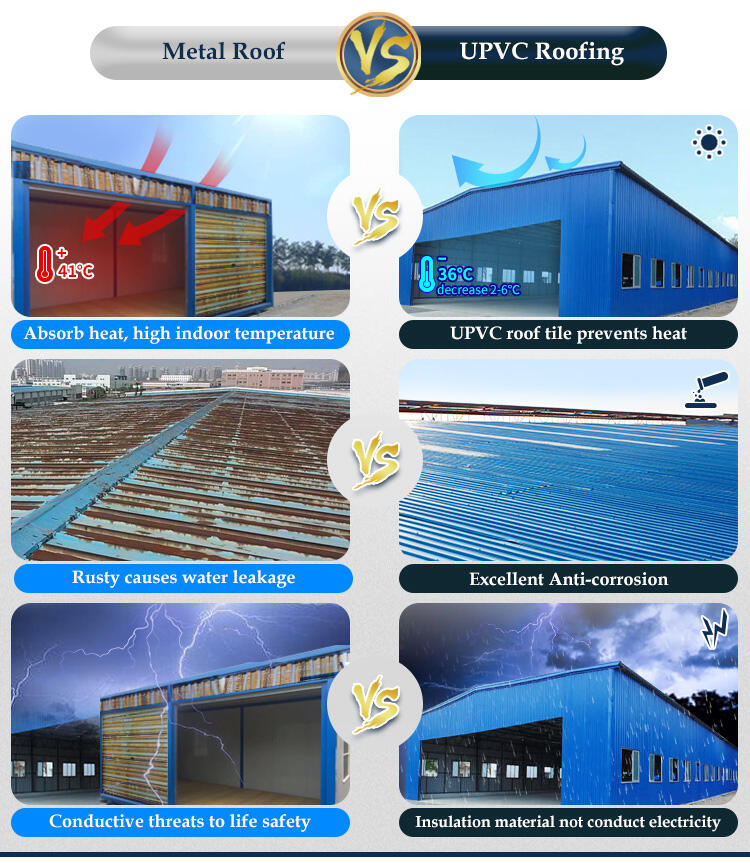
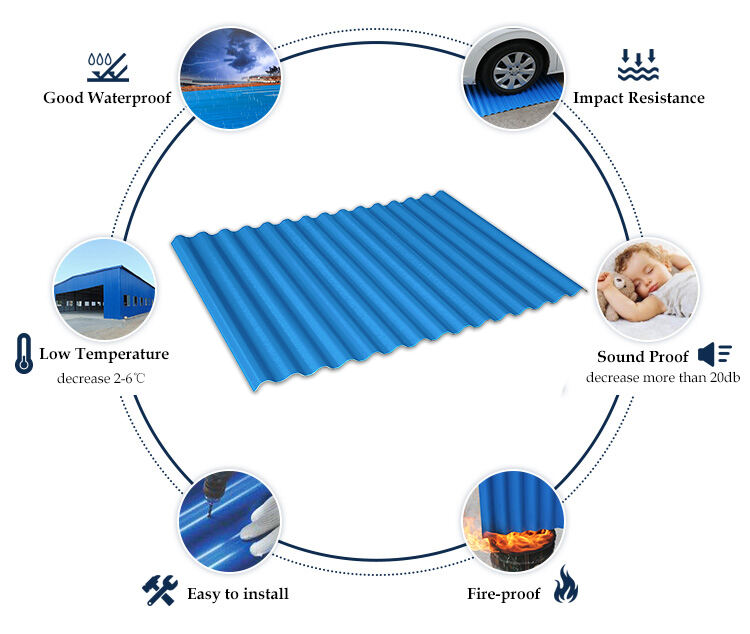
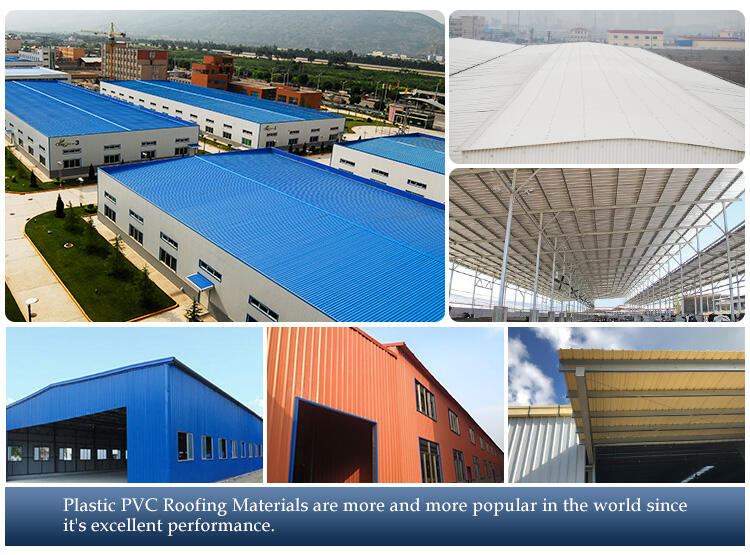
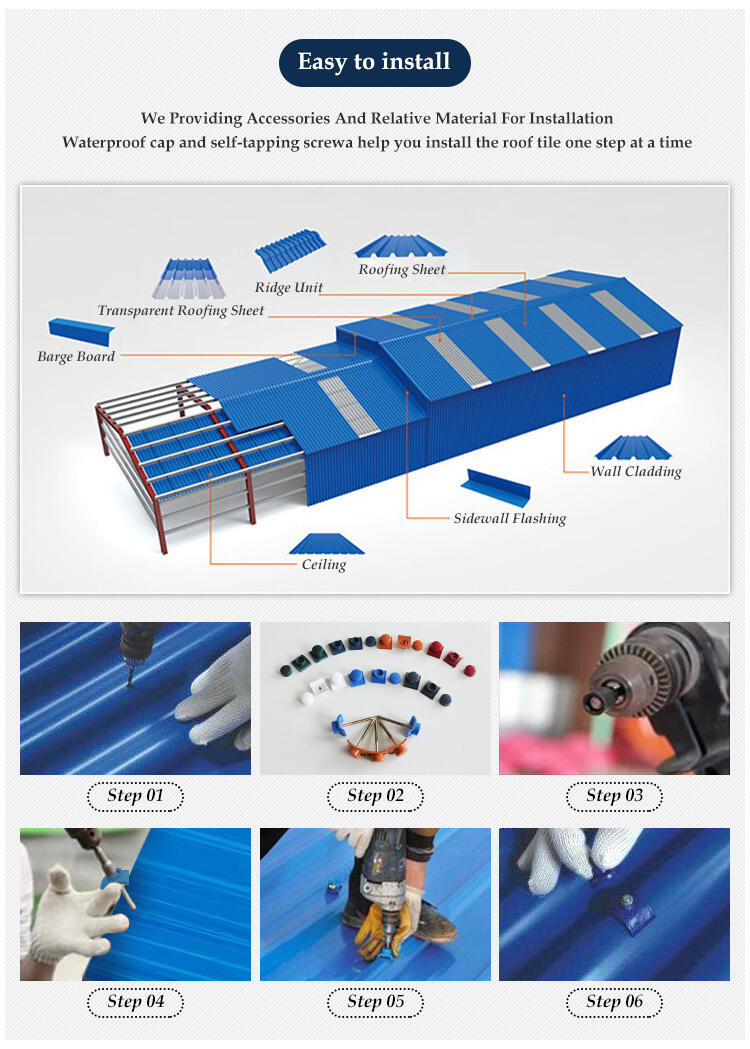
Model | Corrugated Wave Roofing Sheet | |
Material | PVC | |
Surface Film | ASA Material | |
Thickness | 1.5~4.0mm | |
Overall width | 960mm | |
Effective width | 840mm | |
Length | Max 5.75m for 20FT container, Max11.75m for 40HQ container | |
Purlin distance | 880mm | |
Quantity | 4500sqm-6000sqm / 40HQ | |
Screws and caps | 4 sets for one square meter | |
Layers | 1~4 Layers | |
Lifespan | 20 years | |
Features | 1.Excellent heat resistant and Anti-corrosive 2. The variety of colors and patterns | |
Application | Villa, residential house, prefabricated house, pavilion, and some other projects, etc. | |
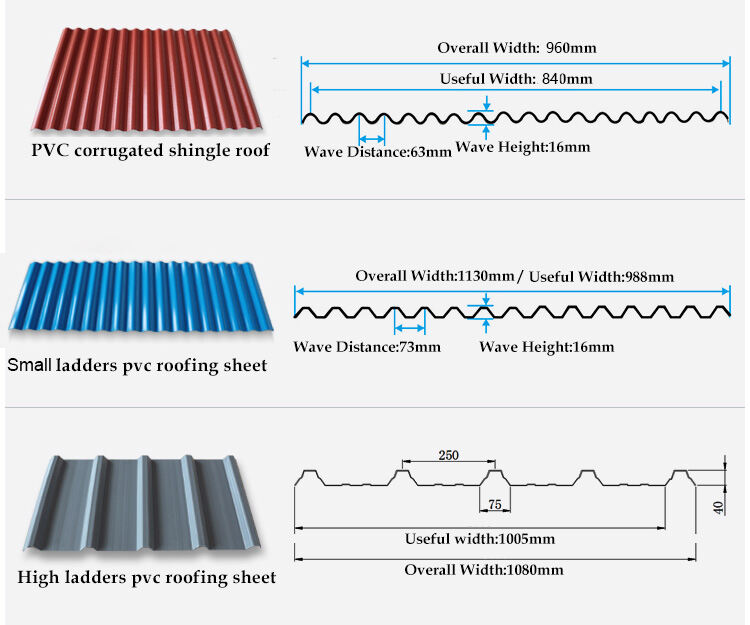
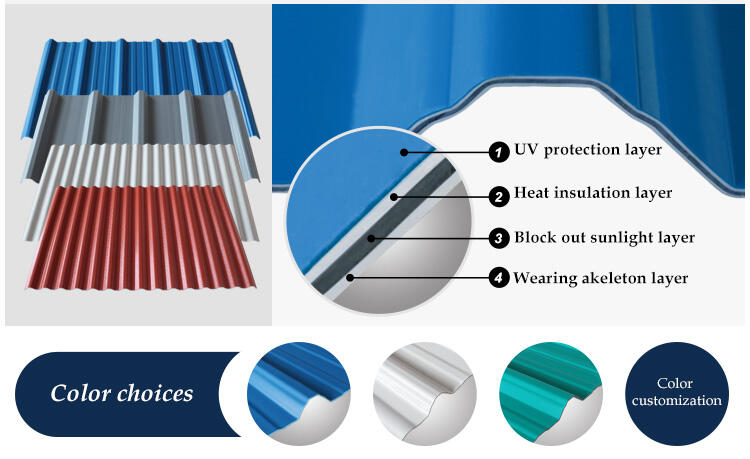
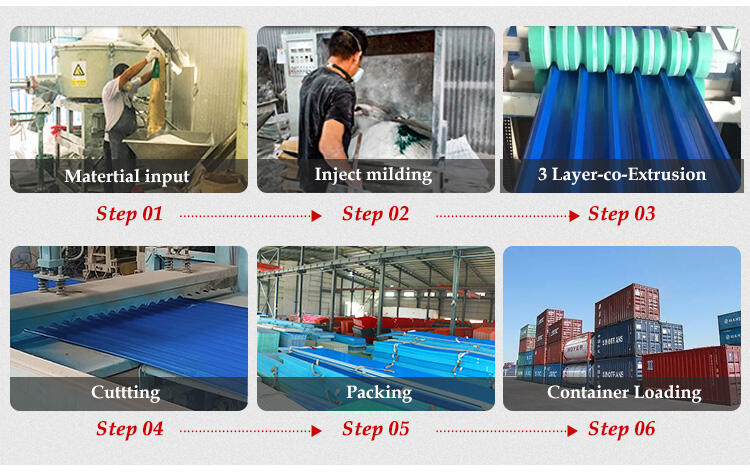
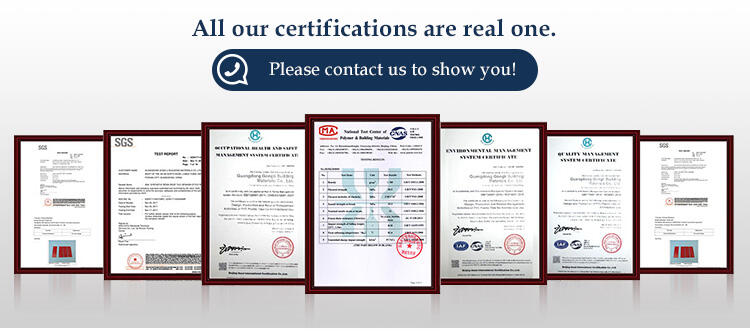
Q:Why use PVC roofing?
A:Not only does a PVC roof have a long lifespan, but it is also low-maintenance and resistant to weathering, UV damage, and fire hazards. Plus, it can be installed in a variety of colors to match your building, and it offers excellent insulation values.
Q:How much weight can a PVC roof hold?
A:PVC systems can withstand up to 300 pounds per inch, 100 pounds per inch heavier than the industry-recommended 200 PPI. Along with its strength, PVC is more energy efficient because of its white color. A white roof helps reflect the sun, allowing for lower cooling costs.
Q:How do you calculate roof sheeting area?
A:Measure the length and width of each roof section (or plane), and multiply them together to get the area of that section. For instance, if one side of the roof measures 20 feet in length and 30 feet in width, its area is 600 square feet. Repeat this for all sections and add them up to get the total surface area.
Q:How do you maintain a PVC roof?
A:Avoid using abrasive or alkaline cleaners because they might cloud or otherwise cause damage to the PVC. For difficult-to-reach areas, use an extension pole like those used for paint rollers. You can affix a sponge to the pole and use it to scrub areas you couldn't otherwise reach without walking onto the roof surface.
Q:How to Store PVC Sheets?
A:PVC sheets are durable and chemically resistant and guaranteed to last for many years if handled properly.
-Here are some tips for storing PVC sheets to ensure you get the most out of your investment.
-Store your PVC sheets horizontally on a flat surface, such as a pallet or a shelf.
-Ensure that no nails or bolts protrude from the platform. Even small rocks can leave permanent dents and scratches on the sheets.
-Stack the largest sheets at the bottom, and the shorter, smaller panels on top.
-Avoid stepping on PVC panels and placing heavy or sharp equipment on them.
-Ensure that the PVC sheets are stored in a dry, ventilated, cool, shaded area away from direct sunlight.
-Do not stack transparent or translucent sheets over opaque PVC sheets.
-Avoid covering the sheets with dark films or other heat-absorbing materials.
-Cover the panels with an opaque, bright, waterproof cover if you intend to leave them outdoors.
-Keep your stack dry to prevent whitening and water spots.
Q:How to Cut PVC Roofing Sheets DIY?
A:Safety First: Protect yourself by using professional equipment, keeping your surroundings neat and tidy, and using tools with caution and care.
Place a layer of cardboard or plywood on the workbench before placing the sheets. This will protect the surface from scratches.
Place the PVC panels on your workbench.
Clamp a few sheets together. This will reduce vibrations.
Use a measuring tape to measure the sheet, and make pen marks at each end. Join the marks with a ruler.
Do not rush measuring and marking. Once trimmed, you cannot patch the sheets together.
Secure the PVC sheets to the workbench surface to prevent movement and vibrations.
Support the sheets near the cutting line. You can do this by placing a timber plank on top of the sheets, parallel to the markings.
Cut along the marked pen line. The preferred method is to use a fine-tooth saw that rotates at high speed.
Advance the saw slowly and steadily and do not stop once you have begun. It will ensure a clean, consistent edge.
Remove leftover cuts and scraps from the cutting table.
Q:Can I walk on pvc roof sheets during or after installation?
A:Although PVC roof sheets is remarkably strong and can support extreme loads, for your safety, do not stand directly on the sheets. If it can’t be avoided, use stepping ladders, platforms or crawling boards.

 EN
EN
 AR
AR
 BG
BG
 HR
HR
 CS
CS
 DA
DA
 NL
NL
 FI
FI
 FR
FR
 DE
DE
 EL
EL
 HI
HI
 IT
IT
 JA
JA
 KO
KO
 NO
NO
 PL
PL
 PT
PT
 RO
RO
 RU
RU
 ES
ES
 TL
TL
 IW
IW
 ID
ID
 LT
LT
 VI
VI
 TH
TH
 TR
TR
 AF
AF
 MS
MS
 KM
KM
 LO
LO
 MY
MY

